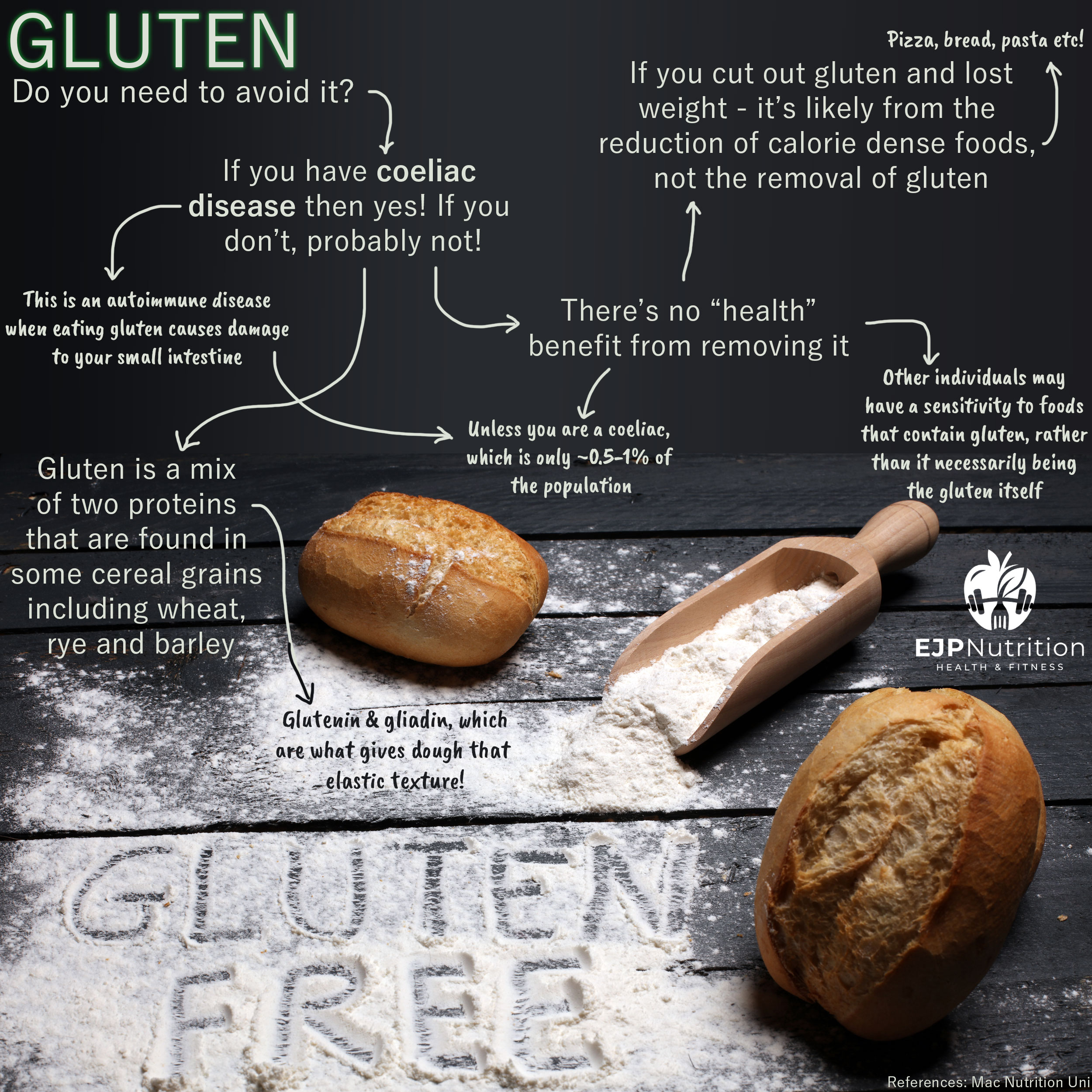Gluten has such a bad rap these days. Is it fair? Let’s have a look and see. First up, what is it? It’s a mixture of two proteins that are present in some cereal grains, including wheat, rye and barley. If you’ve ever made bread and noticed the elastic texture when you’re kneading it – that’s the gluten!
Who should definitely avoid gluten? People who have coeliac disease. This is an autoimmune disease, and when you consume gluten it causes damage to the small intestine. Symptoms include; abdominal pain or cramping, diarrhoea, vomiting, constipation, weight loss, flatulence, swelling to the hands, feet and arms and tingling limbs. The treatment is a gluten-free diet! If you do suspect this, please go and see your doctor who can run tests to check.
Coeliac disease is only prevalent in approximately 0.5-1% of the population. Which leads us to ask, why do so many more people cut it out?
It is likely down to them having some sort of gut issues (more on that in my next post), and the removal of gluten somewhat relieving their symptoms. However, that may not be down to that one element.
One of the treatments for IBS is to reduce FODMAP’s. Fructans are a high FODMAP food, which can be a trigger for GI distress/discomfort. Sources of fructans include wheat products such as bread and pasta. Therefore, removing them can relieve GI symptoms. But this is not because of the gluten, which just happens to also be present in the high fructan wheat products.
Another consideration is people cutting it out and losing weight. This is much more likely to be from a reduction of high calorie gluten containing foods – think pizza, pasta, cake. We know weight loss is dictated by creating an energy deficit. Cutting out large groups of foods, especially those which are that calorie dense, will almost certainly reduce someone’s daily intake, ergo weight loss.
To summarise, it’s unlikely you need to remove gluten from your diet. If you’re experiencing GI problems, consult your doctor who can look at the cause. If you do have coeliac disease, fortunately there are more gluten-free alternatives than ever before.
References: Mac Nutrition Uni, Gujral et al 2012


